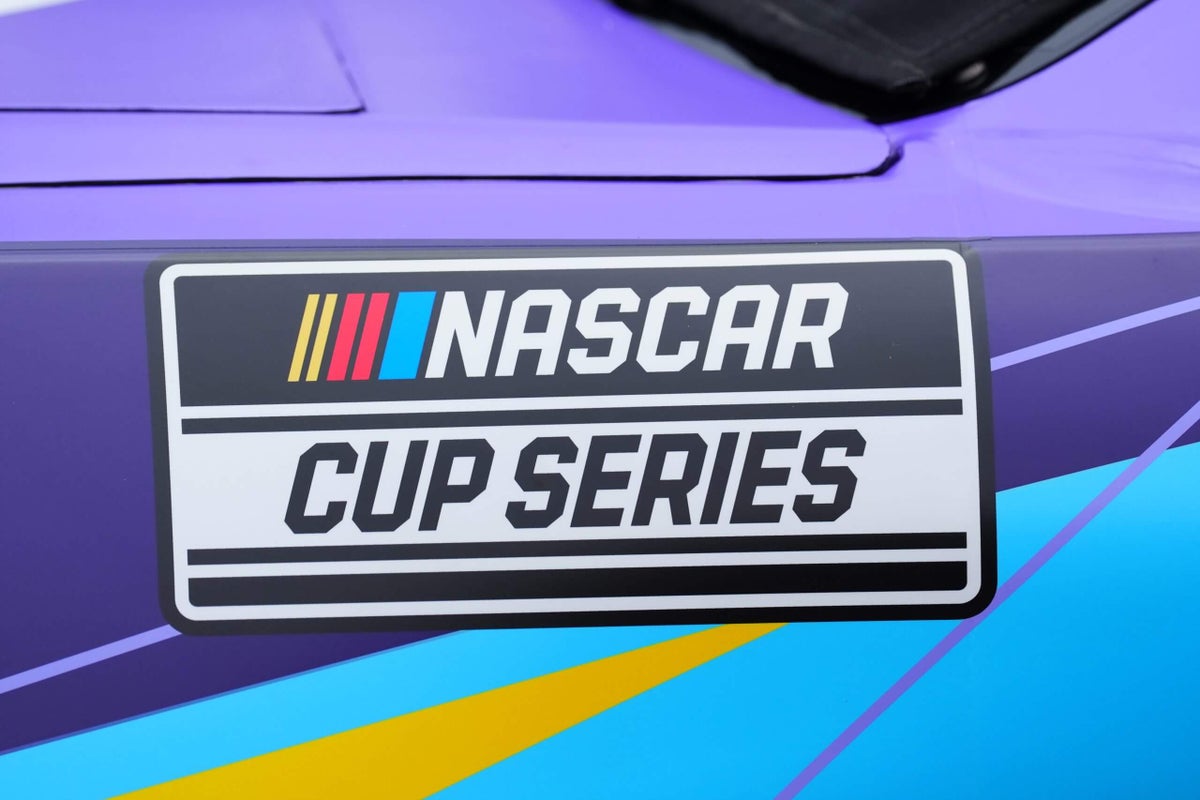NASCAR holds the power in “premier stock car racing” — defined as Cup Series races — the judge in the federal antitrust lawsuit against the sanctioning body ruled Tuesday in a significant win for the two teams bringing the suit.
Front Row Motorsports and 23XI Racing, the team co-owned by NBA legend Michael Jordan and three-time Daytona 500 winner Denny Hamlin, are suing NASCAR, claiming the league acts as an illegal monopoly. The disagreement stems from a long dispute over NASCAR’s charter system, which is similar to franchises for race teams.
The teams say the “marketplace” at stake in the dispute, which will determine whether NASCAR is a monopoly, is limited to stock car racing, and NASCAR said the broader motorsports landscape, including Formula One and IndyCar, should be included.
But Judge Kenneth D. Bell wrote he did not need to decide which side’s claim was correct in defining the marketplace because NASCAR already did so in its counterclaim, which Bell dismissed last week.
The judge said NASCAR’s countersuit was based on “the market for entry of cars into NASCAR Cup Series races in the United States and any other location where a Cup Series race is held.”
And because NASCAR already defined the marketplace itself, Bell ruled NASCAR could not “play the same hand twice in different ways” in arguing in a separate motion that the plaintiffs’ marketplace was too narrow.
“Most simply put, NASCAR made a strategic decision in asserting its counterclaim and must now live with the consequences,” Bell wrote. He added, “NASCAR wants to (but cannot) have it differently on each side of the same coin — heads we win, tails you lose.”
Front Row and 23XI filed the suit in October 2024, after they refused to sign a new charter agreement proposed by NASCAR they felt was inadequate. They were the only two holdouts among the 15 Cup Series teams. Holding one of the charters, which are valued anywhere from $30 million to $50 million apiece, comes with guarantees in revenue and starting spots in races.
The ruling puts NASCAR in a more difficult position if it now must defend itself at a jury trial, which is scheduled to begin Dec. 1 in Charlotte, N.C., and argue that although it effectively has 100 percent market share in the relevant market, it did not abuse its power to rise to the level of violating antitrust laws.
“NASCAR plainly exercises monopsony power in the relevant market under the governing analysis,” Bell wrote. “Not only has it operated the only premier stock car racing series in the United States for many years, the barriers for others to enter the market (availability of large racing tracks, highly qualified racing car teams, etc.) are obvious.”
During the summary judgment hearing last month, Jeffrey Kessler, the attorney for 23XI and Front Row, argued that other forms of motorsports are too drastically different from NASCAR for them to be considered the same marketplace. The difference is so vast it makes racing in series like Formula One or IndyCar unrealistic.
“We are very pleased with the Court’s decision today, ruling in our favor,” Kessler said in a statement Tuesday. “This means that the trial can now be focused on whether NASCAR has maintained that power through anticompetitive acts and used that power to harm teams. We’re prepared to present our case to the jury and are focused on obtaining a verdict that benefits all of the teams, partners, drivers, and the fans.”
Bell has repeatedly cautioned the parties to settle before Dec. 1, saying the potential ramifications of a trial could be ruinous for all involved, including the prevailing side.
In October, NASCAR met with 23XI and Front Row for two days of settlement talks, which, though unsuccessful, were considered the most productive discussions since the teams filed their lawsuit last year. NASCAR commissioner Steve Phelps stated last week that he and NASCAR are working to find a resolution to a case that has cast a big shadow over the sport.
Tuesday, NASCAR issued a statement disagreeing with Bell’s ruling while also hinting that, should it lose the trial, the league would appeal to the U.S. Court of Appeals for the 4th Circuit.
“NASCAR looks forward to proving that it became the leading motorsport in the United States through hard work, risk-taking, and many significant investments over the past 77 years,” NASCAR’s statement read. “The antitrust laws encourage this — and NASCAR has done nothing anticompetitive in building the sport from the ground up since 1948. … NASCAR believes in the charter system and will continue to defend it from 23XI and Front Row’s efforts to claim that the charter system itself is anticompetitive.”

